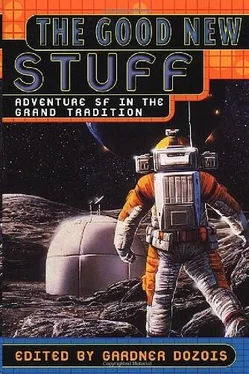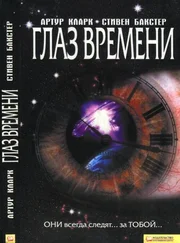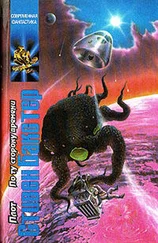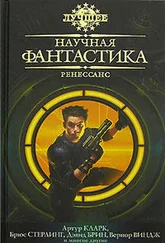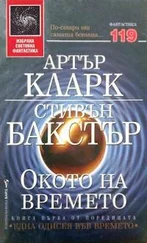Стивен Бакстер - The Good New Stuff
Здесь есть возможность читать онлайн «Стивен Бакстер - The Good New Stuff» весь текст электронной книги совершенно бесплатно (целиком полную версию без сокращений). В некоторых случаях можно слушать аудио, скачать через торрент в формате fb2 и присутствует краткое содержание. Год выпуска: 2002, ISBN: 2002, Издательство: St. Martin's Griffin, Жанр: Фантастика и фэнтези, на английском языке. Описание произведения, (предисловие) а так же отзывы посетителей доступны на портале библиотеки ЛибКат.
- Название:The Good New Stuff
- Автор:
- Издательство:St. Martin's Griffin
- Жанр:
- Год:2002
- ISBN:0-312-26456-9
- Рейтинг книги:3 / 5. Голосов: 1
-
Избранное:Добавить в избранное
- Отзывы:
-
Ваша оценка:
- 60
- 1
- 2
- 3
- 4
- 5
The Good New Stuff: краткое содержание, описание и аннотация
Предлагаем к чтению аннотацию, описание, краткое содержание или предисловие (зависит от того, что написал сам автор книги «The Good New Stuff»). Если вы не нашли необходимую информацию о книге — напишите в комментариях, мы постараемся отыскать её.
The Good New Stuff — читать онлайн бесплатно полную книгу (весь текст) целиком
Ниже представлен текст книги, разбитый по страницам. Система сохранения места последней прочитанной страницы, позволяет с удобством читать онлайн бесплатно книгу «The Good New Stuff», без необходимости каждый раз заново искать на чём Вы остановились. Поставьте закладку, и сможете в любой момент перейти на страницу, на которой закончили чтение.
Интервал:
Закладка:
Now it was a battleground.
Saffron-robed monks armed with weaponry from a thousand different eras were fighting against man-shaped black androids. Bodies of men and machines were sprawled on the great steps; smoke billowed from the topmost ranks of the narrow windows; red and green energy beams flickered against the pink sky.
She walked through the carnage untouched. Nothing in this world could touch her. Only perhaps the man who was waiting for her, sitting cross-legged beneath the great golden Buddha, which a stray shot from some energy weapon had decapitated and half-melted to slag. On either side, hundreds of candles floated in great bowls filled with water; their lights shivered and flickered from the vibration of heavy weaponry.
The man did not open his eyes as she approached, but he said softly, "I already have what I need. These foolish monks are defending a lost cause. You should stop them."
"It is what they have to do. They can't destroy us, of course, but I could destroy you."
"Guests can't harm other guests," he said calmly. "It is one of the rules."
"I am not a guest. Nor, I think, are you."
She told her machines to remove him. Nothing happened.
He opened his eyes. He said, "Your machines are invisible to the puppets and partials you created to populate this fantasy world. I am invisible to the machines. I do not draw my energy from the world grid, but from elsewhere."
And then he leaped at her, striking with formal moves millions of years old. The Angry Grasshopper, the Rearing Horse, the Snapping Mantis. Each move, magnified by convergent energies, could have killed her, evaporated her body, melted her machines.
But she allowed her body to respond, countering his attacks. She had thought that she might welcome death; instead, she was amused and exhilarated by the fury of her response. The habit of living was deeply ingrained; now it had found a focus.
Striking attitudes, tangling in a flurry of blows and counterblows, they moved through the battleground of the Library, through its gardens, moved down the long talus slope at the foot of the massif in a storm of dust and shattered stones.
At the edge of a lake which filled a small, perfectly circular crater, she finally tired of defensive moves and went on the attack. The Striking Eagle, the Plunging Dragon, the Springing Tiger Who Defends Her Cubs. He countered in turn. Stray energies boiled the lake dry. The dry ground shook, split open in a mosaic of plates. Gradually, a curtain of dust was raised above the land, obscuring the setting sun and the green face of the Moon, which was rising above the mountains.
They broke apart at last. They stood in the center of a vast crater of vitrified rock. Their clothes hung in tatters about their bodies. It was night, now. Halfway up the scarp of the massif, small lightnings flashed where the monks still defended the Library.
"Who are you?" she said again. "Did I create you?"
"I'm closer to you than anyone else in this strange mad world," he said.
That gave her pause. All the guests, clones or copies or replicants, were of her direct genetic lineage.
She said, "Are you my death?"
As if in answer, he attacked again. But she fought back as forcefully as before, and when he broke off, she saw that he was sweating.
"I am stronger than you thought," she said.
He took out a small black cube from his tattered tunic. He said, "I have what I need. I have the memory core of the Library. Everything anyone who came here placed on record is here."
"Then why do you want to kill me?"
"Because you are the original. I thought it would be fitting, after I stole this."
She laughed. "You foolish man! Do you think we rely on a single physical location, a single master copy? It is the right of everyone in the clade to carry away the memories of everyone else. Why else are we gathered here?"
"I am not of your clade." He tossed the cube into the air, caught it, tucked it away. "I will use this knowledge against you. Against all of you. I have all your secrets."
"You say you are closer to me than a brother, yet you do not belong to the clade. You want to use our memories to destroy us." She had a sudden insight. "Is this war, then?"
He bowed. He was nearly naked, lit by the green light of the Moon and the dimming glow of the slag that stretched away in every direction. "Bravo," he said. "But it has already begun. Perhaps it is even over by now; after all, we are twenty thousand light-years above the plane of the Galactic disc, thirty-five thousand light-years from the hub of your Empire. It will take you that long to return. And if the war is not over, then this will finish it."
She was astonished. Then she laughed. "What an imagination I have!"
He bowed again, and said softly, "You made this world from your imagination, but you did not imagine me."
And he went somewhere else.
Her machines could not tell her where he had gone; she called upon all the machines in the world, but he was no longer on the Earth. Nor was he amongst the fleet of ships which had carried the guests— in suspended animation, as frozen embryos, as codes triply engraved in gold— to the world she had created for the gathering.
There were only two other places he could be, and she did not think he could have gone to the sun. If he had, then he would have triggered the machine at the core, and destroyed her and everyone else in the subsequent supernova.
So she went to the Moon.
She arrived on the farside. The energies he had used against her suggested that he had his own machines, and she did not think that he would have hidden them in full view of the Earth.
The machines which she had instructed to recreate the Earth for the one hundred years of the gathering had recreated the Moon, too, so that the oceans of the Earth would have the necessary tides; it had been easier than tangling gravithic resonances to produce the same effect. It had taken little extra effort to recreate the forests which had cloaked the Moon for a million years, between the first faltering footsteps and the abandonment of the Earth.
It was towards the end of the long Lunar night. All around, blue firs soared up for hundreds of meters, cloaked in wide fans of needles that in the cold and the dark had drooped down to protect the scaly trunks. The gray rocks were coated in thin snow, and frozen lichens crunched underfoot. Her machines scattered in every direction, quick as thought. She sat down on top of a big rough boulder and waited.
It was very quiet. The sky was dominated by the triple-armed pinwheel of the Galaxy. It was so big that when she looked at one edge she could not see the other. The Arm of the Warrior rose high above the arch of the Arm of the Hunter; the Arm of the Archer curved in the opposite direction, below the close horizon. Star clusters made long chains of concentrated light through the milky haze of the galactic arms. There were lines and threads and globes and clouds of stars, all fading into a general misty radiance dissected by dark lanes which barred the arms at regular intervals. The core was knitted from thin shells of stars in tidy orbits concentrically packed around the great globular clusters of the heart stars, like layers of glittering tissue wrapped around a heap of jewels.
Every star had been touched by humankind. Existing stars had been moved or destroyed; millions of new stars and planetary systems had been created by collapsing dust clouds. A garden of stars, regulated, ordered, tidied. The Library held memories of every star, every planet, every wonder of the old untamed Galaxy. She was beginning to realize that the gathering was not the start of something new, but the end of five million years of Galactic colonization.
After a long time, the machines came back, and she went where they told her.
Читать дальшеИнтервал:
Закладка:
Похожие книги на «The Good New Stuff»
Представляем Вашему вниманию похожие книги на «The Good New Stuff» списком для выбора. Мы отобрали схожую по названию и смыслу литературу в надежде предоставить читателям больше вариантов отыскать новые, интересные, ещё непрочитанные произведения.
Обсуждение, отзывы о книге «The Good New Stuff» и просто собственные мнения читателей. Оставьте ваши комментарии, напишите, что Вы думаете о произведении, его смысле или главных героях. Укажите что конкретно понравилось, а что нет, и почему Вы так считаете.
